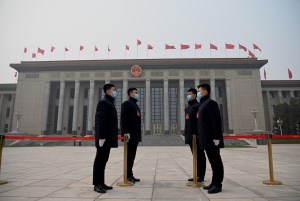
After months of preparation and concerning sentiment stemming from a deteriorating external environment, Covid-related restrictions and the plummeting real-estate sector, the Communist Party of China’s 20th National Congress started with President Xi Jinping’s delivery of the work report.
First of all, dynamic zero-Covid policies remain in place, sealed by the success in saving lives during the past few years. No clear exit strategy has been unveiled. However, the word “dynamic” opens the door to a more flexible/pragmatic reading of such policies, if conditions warrant.
Second, China’s modernization is a key objective, which also has an important economic angle: achieving self-sufficiency, for which moving up the technological ladder is key. This means that China will continue to use industrial policy to support key sectors but also acquire technology whenever and wherever possible.
Against such a background, dual circulation policy is mentioned in the report as a yardstick of the importance of the domestic market. The concept of industrial policy is not mentioned in Xi’s speech, but it resonates when referring to state-sponsored innovation.
The recent actions taking by the US to step up export controls on semiconductors into China supports the direction taken by the Chinese government years ago, which was deepened further in President Xi’s speech. In other words, the threat of US containment, which is increasingly real, is read as justification of Xi’s inward-looking tone on China’s economy.
Third, economic growth is no longer the only key objective per se, but only if “balanced.” In particular, while the “China dream” is maintained in terms of doubling the country’s income, the key is how China gets there. Balanced growth is essential, but the reading should not be the good old “rebalancing,” understood as consumption being the most important growth engine.
Even the pursuit of “common prosperity” was not mentioned frequently in the president’s speech, which might have surprised many. By now, it should be clear that the objective is not to build a welfare state of the European type to operationalize common prosperity, but rather to increase the role of the state/party to “regulate” wealth accumulation.
The latter is indeed a key concept included in the speech. This should be a warning signal for the wealthy.
The fourth and final point is that the equilibrium between market and state-driven economy is increasingly tilted toward the latter, as the expression “market economy” was also not frequently present in the speech while the role of state-driven innovation stood out prominently.
All in all, President Xi’s report kicking off the Communist Party Congress is not only a continuation of China’s existing economic policies but a doubling down on the nation’s direction with two objectives: targeted self-reliance and national security.
An important corollary to this speech is whether the above goals and the instruments to achieve them are a free lunch. The rapid weakening of the yuan in the run-up to the Congress and the cautious market reaction to Xi’s speech are signals of the potential costs associated with a more inward-looking China. Markets were also expecting a signal on the future of the zero-Covid policy, but that was not given in the report.
Still, China is a very large market, and the rest of the world is in a very difficult situation at the moment, saddled with inflation and, in the case of Europe, war and an energy crisis. Against such a backdrop, international investors might be more accepting of China’s direction for the lack of better options.
However, President Xi’s report needs to be interpreted as a structural direction for China while inflation woes, and possibly even the war in Europe, might be temporary. Although the jury is still out on the relative strengths and weaknesses, what seems clear is that systemic competition between China and the West was here before the Party Congress and is here to stay.
Alicia García Herrero is the chief economist for Asia-Pacific at Natixis and a senior research fellow at the Brussels-based think-tank Bruegel. Follow her on Twitter @Aligarciaherrer.

